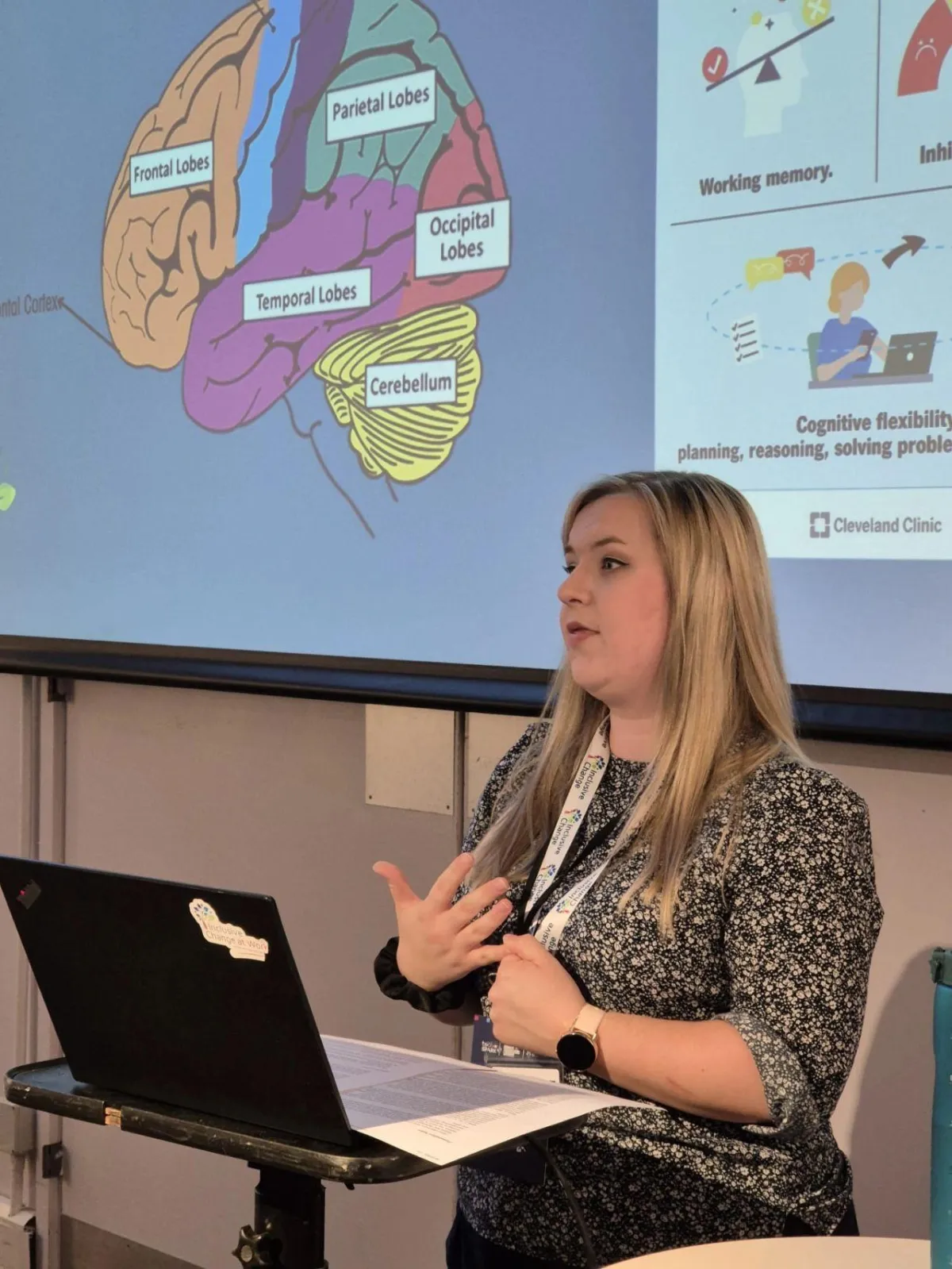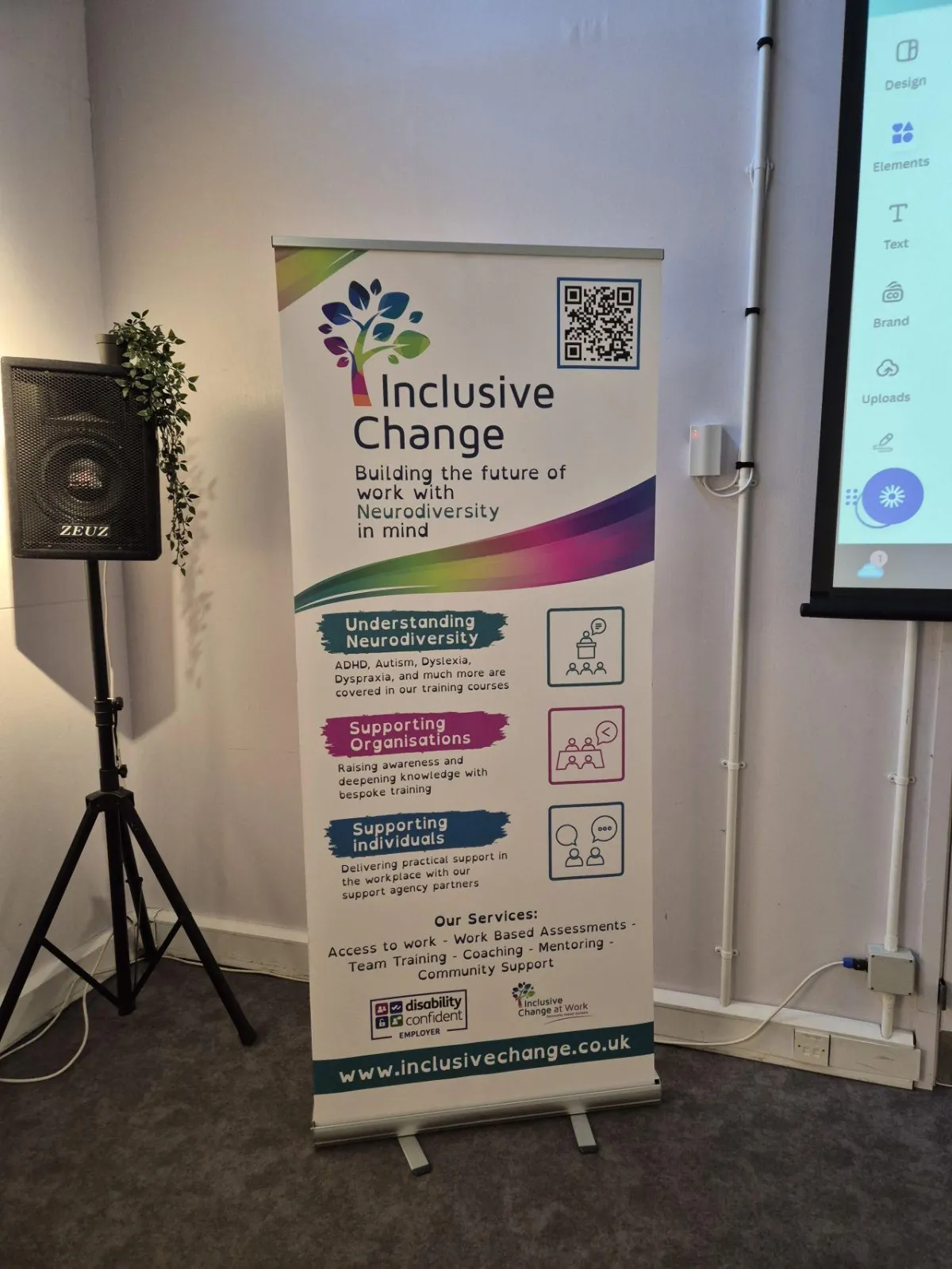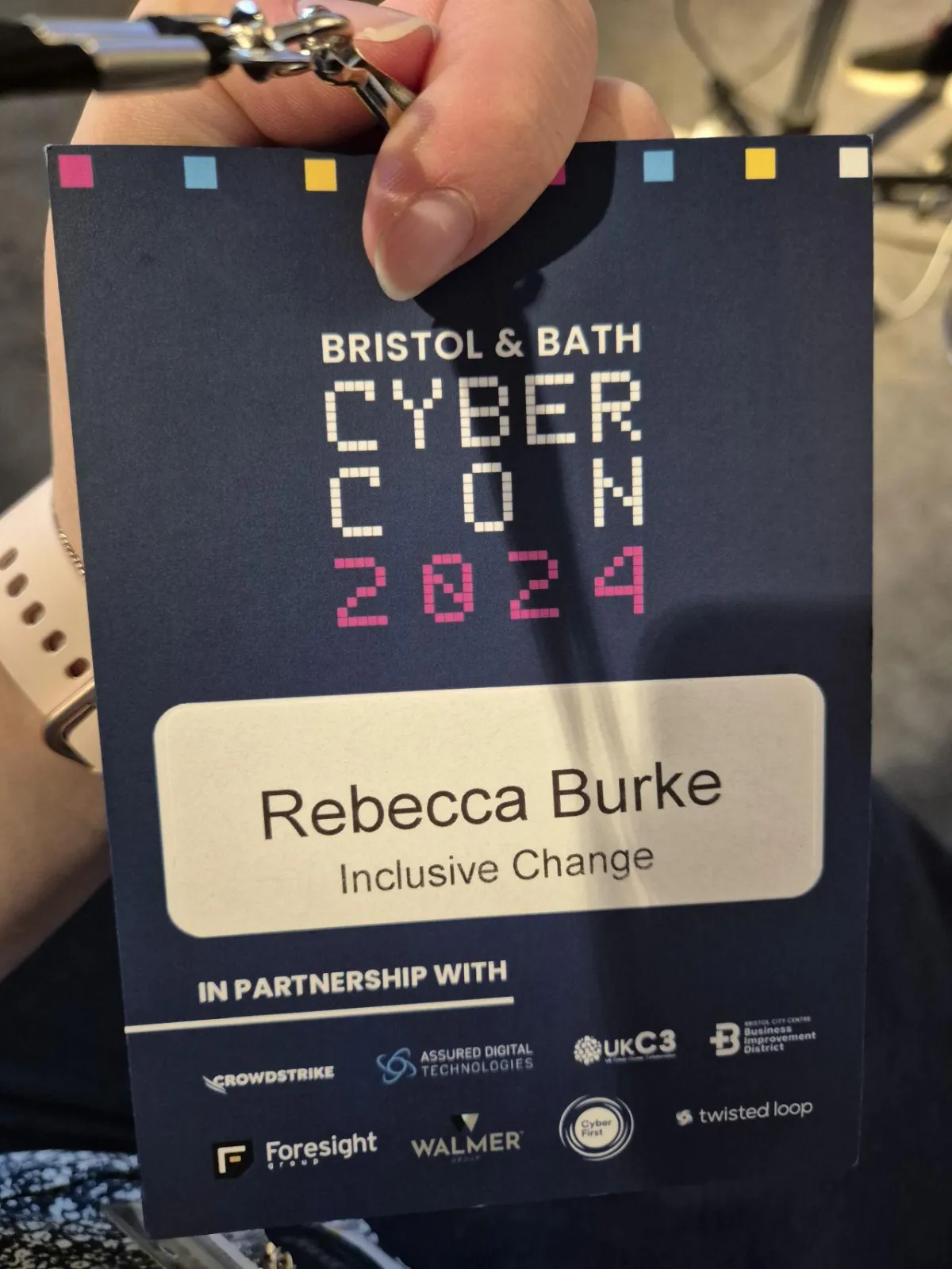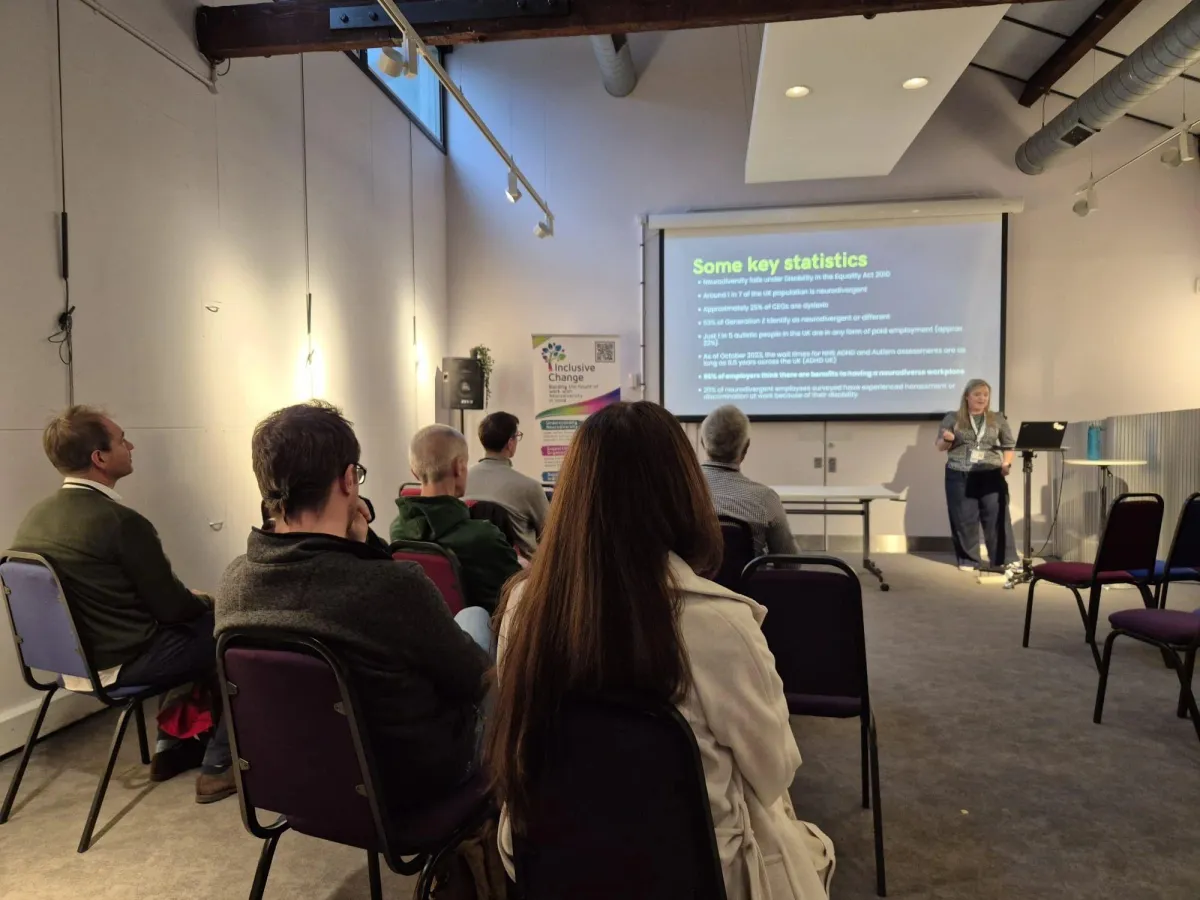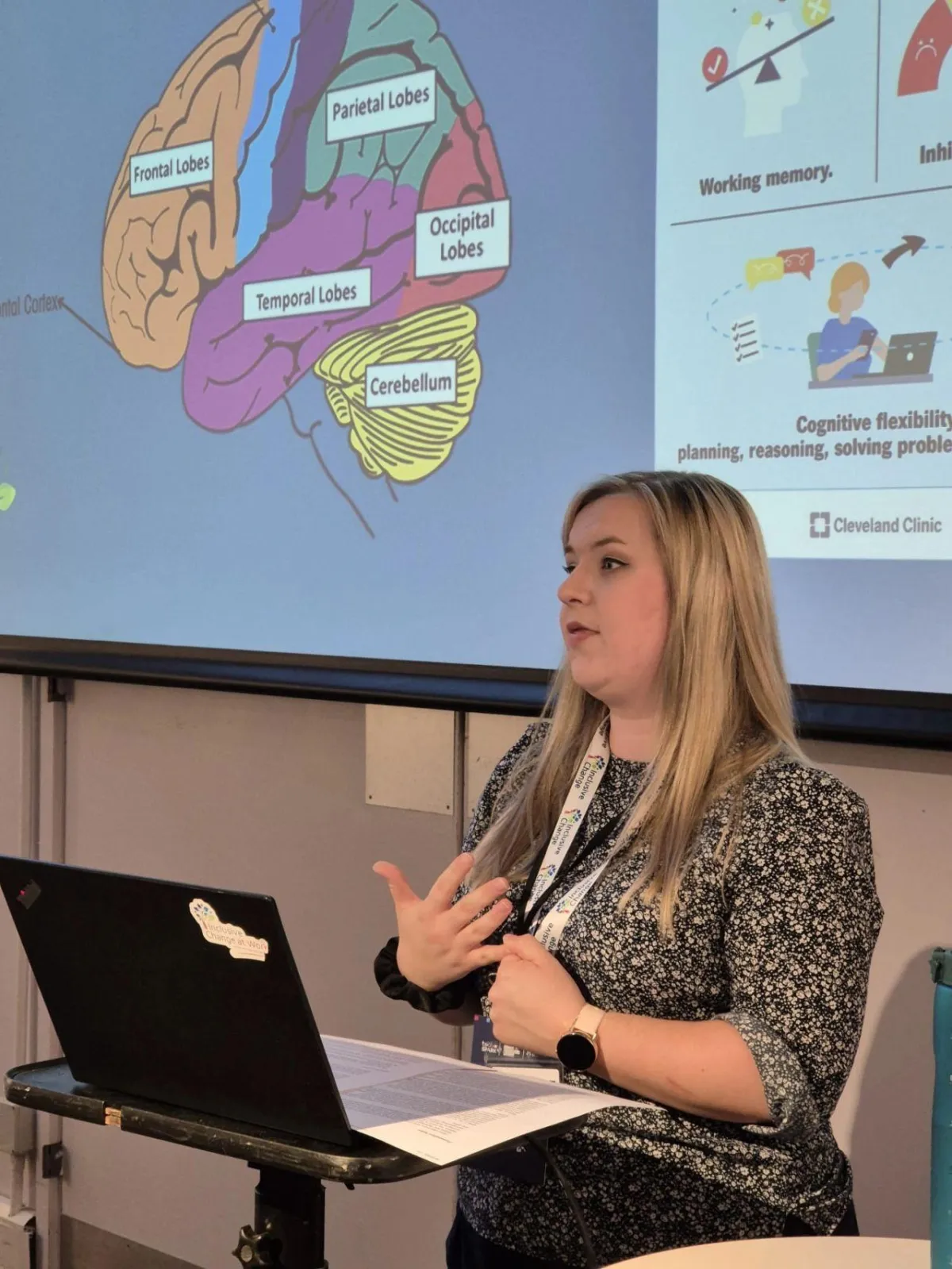
Becca Burke
Speaker
Empowering Neurodiversity in the workplace
Hi, I am Becca!
I'm Becca, a passionate advocate for neurodiversity and understanding ADHD in the workplace. Living with ADHD (combined presentation) myself, I bring a unique blend of professional experiences and personal insights to the conversation about creating inclusive, productive work environments. Equity in the workplace is especially important for us as neurodiverse folk; if given the adjustments and support we need, we can not only survive, but thrive at work.
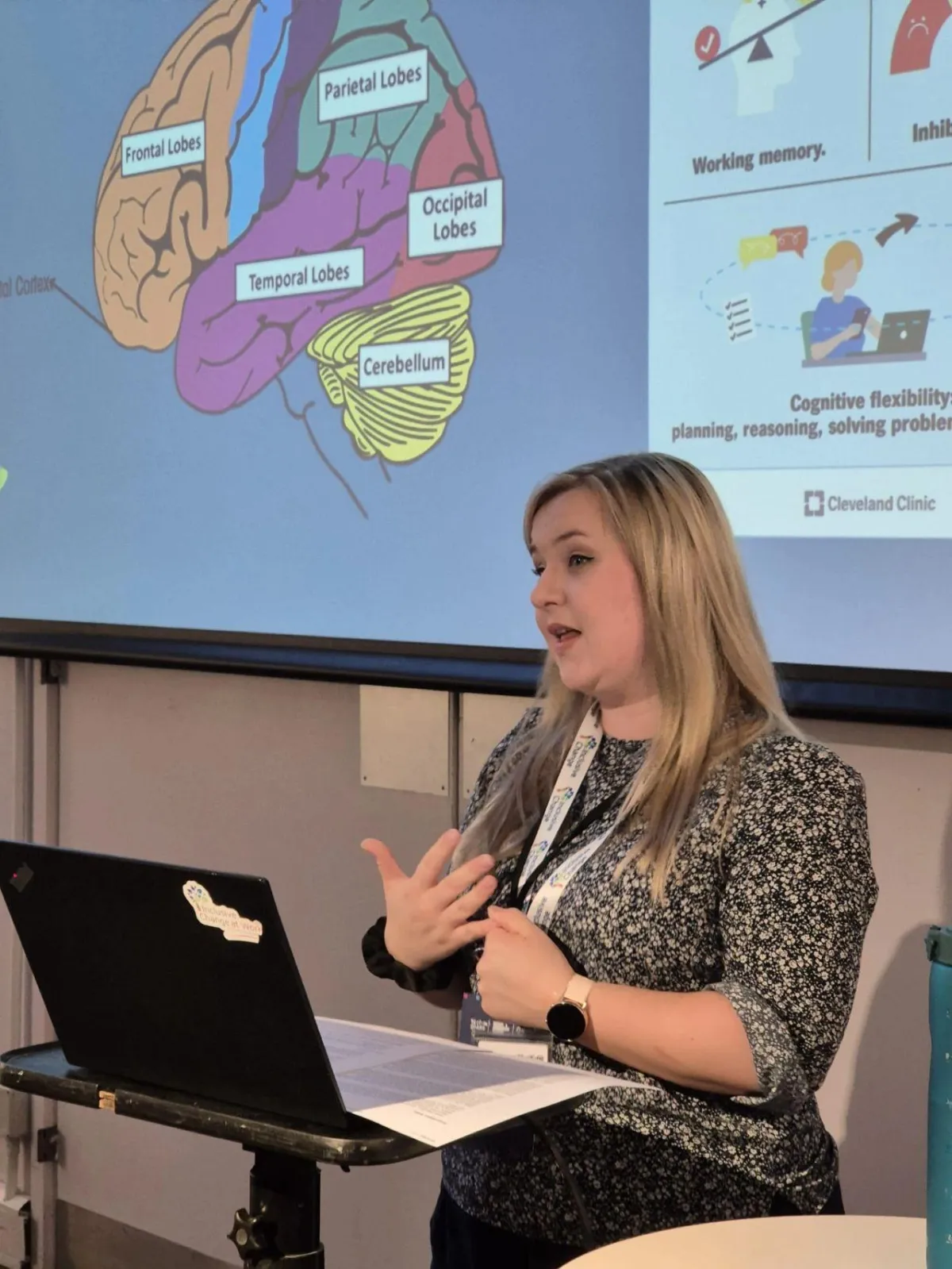
My professional journey
My career path has been varied, in true ADHD style! From my early days in customer relations to roles in sales and account management, I've always excelled in building relationships and understanding people's needs. My time at a FTSE 100 bank gave me a solid foundation for navigating large organisations and the politics of the office environment, and I then had to adapt quickly to the drastic changes of the Covid-19 Pandemic Lockdown. It was during this time, recognising the disruption to my routine, hyperfocusing on work outside of my core hours, and my inability to finish any tasks to completion, that I realised something wasn’t working for my brain.
Throughout my career, I’ve recognised that I was struggling, but never quite understood why. I saw so much of my own journey in the struggles I heard from other neurodiverse people, and I wanted to find a way that I could tangibly make a difference. After my own diagnosis in early 2024, I was inspired to become an ADHD Coach with Leanne Maskell's ADHD Works, and led to me being headhunted for Inclusive Change Ltd as Support Specialist.
My Areas of Expertise
- ADHD awareness and management strategies
- Education and training around ADHD for businesses
- Job coaching neurodivergent clients at work
- Rejection Sensitive Dysphoria awareness/training
- Business process improvement for neurodiverse workforce support
- Working with clients as a neurodiversity educated Virtual Assistant
- Neurodivergent talent recruitment and retention
- ADHD Works Level 1 Coach
Popular Discussion Topics
- Rejection Sensitive Dysphoria (RSD) & ADHD
- ADHD and the menopause
- ADHD screening in prisons
- ADHD and neurodiversity co-occuring traits
- ADHD celebrities
- Current research development
Living with ADHD
- Physiological difference in the brain
- ADHD facts and figures
- Common misconceptions
- Lived experience
- Interactive Q&A
ADHD in the Workplace
- Common challenges and strategies
- Strengths ADHDers bring to the workplace
- Challenges for us in the workplace
- Helpful strategies
- Reasonable Adjustments
- Equality Act 2010 protection
My Speaking Style
I pride myself on being engaging, insightful, and empathetic. My presentations blend personal anecdotes, research-based strategies, and interactive elements that leave audiences both informed and inspired. I like making complex topics accessible, and providing concrete, implementable solutions to common workplace challenges.
Why Choose Me?
At Inclusive Change, we understand your ‘Why,’ and meet you where you are on your journey as a business. Whether you're looking to educate your HR or leadership teams, or provide valuable insights to your entire organisation, I can help. I don’t believe that we as neurodivergent people need to change who we are to succeed; with the right support, education and awareness, we can be ourselves without compromise.
Work with me
Ready to transform your understanding of ADHD in the workplace?
Would you like me to run a workshop for you?
Get in touch using my calendar below.
Read my blog here: https://inclusivechange.co.uk/blog/b/adhd-and-me
Read more
The blog
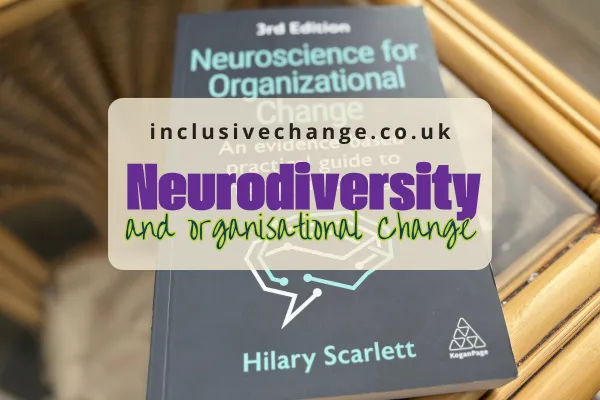
Psychological safety in change
Change doesn’t just shake up structures and systems, it unsettles people. For neurodivergent employees, the emotional impact of organisational change can be profound, particularly when psychological safety is lacking or inconsistently applied.
In the final part of this blog series, based on an interview I gave published in Neuroscience for Organisational Change with Hilary Scarlett we explore why psychological safety must be sustained through change, and why managers and leaders carry a particular responsibility to protect and promote it. Without this foundation, even the most inclusive strategies can unravel.
Psychological Safety Is Not a One-Off Effort
Psychological safety means being able to speak up, share concerns, or show vulnerability without fear of judgment or consequence. It is a prerequisite for innovation, collaboration, and inclusion, and it is especially crucial for neurodivergent employees, many of whom may have experienced misunderstanding, exclusion, or stigma in previous roles.
When change arrives, the dynamics shift. Project leads may foster safe environments during the transition, but what happens when they leave? If a new manager replaces a psychologically safe leader with a more rigid or less empathetic approach, the sense of safety can collapse overnight.
For a neurodivergent person who has disclosed a diagnosis, raised concerns, or taken interpersonal risks, this shift can be deeply damaging. Trust is fragile. Once broken, it takes more than policy to repair.
The Manager’s Role in Navigating Neurodivergent Needs
Managers are on the front line of change. They don’t need to know the diagnoses of their team members, but they must be attuned to signs of struggle, and ready to respond constructively. That means asking thoughtful questions, not making assumptions.
A well-intentioned manager might notice someone disengaging and assume they are resistant. But if that person is dealing with the loss of their work routines, or has lost access to the tools that supported their performance, what looks like resistance may be exhaustion or anxiety.
One common misunderstanding relates to Rejection Sensitivity Dysphoria (RSD), which is particularly prevalent among people with ADHD. Even neutral feedback or a change in tone can trigger an outsized emotional response. A neurodivergent employee might suddenly leave a meeting, not from aggression but to avoid crying or showing visible distress, behaviour that could be misread if not understood through the right lens.
Managers must be trained to navigate these subtleties. They need the language, the empathy, and the tools to differentiate between behavioural issues and unmet needs. This isn't a one off awareness session but might look like a peer support or coaching network for managers or access to an experienced coach for your team when you are going through change programmes.
Designing for Safety, Not Just Compliance
Psychological safety cannot be left to chance. It must be built into the culture of change, not bolted on. This can mean:
Establishing regular, non-judgmental check-ins during periods of change
Offering a range of communication channels for feedback or concerns
Normalising conversations about different work styles, regardless of disclosure or sharing needs
Training leaders in neuroinclusive communication, empathy, and support strategies
A Foundation in Neuroscience
In Neuroscience for Organizational Change, Hilary Scarlett outlines the neurological need for control, predictability, and social connection. Psychological safety supports these needs, and its absence can trigger fight, flight, freeze, or fawn responses, particularly in neurodivergent individuals.
The book provides powerful insights into how leaders can design change in a way that works with the brain, not against it. For any organisation looking to make inclusion real, it’s an essential resource.
Order your copy at Kogan Page and use code NEW20 for 20% off your first purchase.
Embedding Lasting Change
At Inclusive Change, we work with organisations to embed psychological safety and neuroinclusion into the heart of their change programmes. From leadership coaching to ND audits and bespoke training, we help leaders shift from awareness to action.
To find out how we can support your team, visit inclusivechange.co.uk
Some of the Companies Inclusive Change Have Worked With So Far


Column Header
Lorem ipsum dolor sit amet consecetuer lorem ipsum
Organically grow the holistic world view of disruptive innovation
At the end of the day, going forward, a new normal that has evolved
Column Header
Lorem ipsum dolor sit amet consecetuer lorem ipsum
Organically grow the holistic world view of disruptive innovation
At the end of the day, going forward, a new normal that has evolved
Column Header
Lorem ipsum dolor sit amet consecetuer lorem ipsum
Organically grow the holistic world view of disruptive innovation
At the end of the day, going forward, a new normal that has evolved
Inclusive Change Ltd
The Brightwell, Bradbury House
Wheatfield Drive
Bradley Stoke, Bristol
BS329DB
Copyright 2025 - Inclusive Change Ltd
Companies House: 12412464
VAT NO: 352 1564 17
ICO Reg: ZB081779
UK Register of Learning Providers: 10090652

